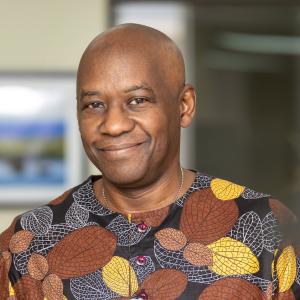The Future of the Caribbean is Single-use Plastic-Free
11 January 2019
- Statement on the Ban of Single-Use Plastics in Jamaica by Vincent Sweeney, Head of the Caribbean Sub-Regional Office, UN Environment
The future of the Caribbean is to be free of single-use plastics and plastic pollution. A Caribbean that is sustainable, resilient and growing economically must take care of the people and the industries upon which it depends. One of the ways we can effectively do this is to reduce our dependency on single-use plastics.
UN Environment’s Waste Management Outlook for Latin America and the Caribbean, released in October 2018 finds that of the 145 tonnes of garbage produced each day, plastic waste contributes to 17 tonnes. This number is steadily increasing every day. Another recent report published by UN Environment, entitled “Legal Limits on Single-Use Plastics and Microplastics: A Global Review of National Laws and Regulations” finds that at least one hundred and twenty-seven (127) out of 192 countries reviewed (about 66%) have adopted some form of legislation to regulate plastic bags. Plastic bags regulations globally include restrictions on the manufacture, distribution, use, and trade of plastic bags, as well as taxation and levies.
Waste management, and in particular, the disposal of plastics has been a great concern for Caribbean ministers; this was reinforced in our discussions with them as recently as last October at the Second High-Level Forum for Caribbean Ministers with Responsibility for Waste.
At that time, the Caribbean Ministers endorsed a Caribbean Waste Management Action plan which includes among others – the priority of reducing plastic waste.
It is for that reason, that the UN Environment Caribbean Sub-Regional Office applauds Jamaica for its bold move to ban single-use plastic bags, straws and Styrofoam.
Jamaica joins approximately seven Caribbean countries who have implemented measures to reduce plastic pollution. This is a forward step in ensuring a future in which we have achieved the Sustainable Development Goals related to Climate Action and preserving land on life and in the water.
Beyond achieving the Sustainable Development Goals, we must also seek to preserve the complex link between the environment, and the social and economic development of the country. This will improve the present economic growth status and ensure that future generations can enjoy and benefit from the rich resources of the island.
The ban is however only one of a number of possible measures needed to reduce pollution. We look forward to continued environmental advances as the activities of the UN Environment-funded Plastic Minimization Project is implemented in conjunction with the Ministry of Economic Growth and Job Creation.
Of course, change does not occur overnight, and we must all go through the teething pains of this transition. However, the long-term effects of plastic pollution on climate change, health, sanitation, food production, tourism, incomes and overall economic growth far outweigh what might now be considered an inconvenience.
We encourage all Jamaicans to get on board, as you support the government in the implementation of the plastic ban. It is an opportunity for business innovation and to move towards more sustainable alternatives.
UN Environment, through its Caribbean Sub-Regional Office, stands ready and committed to support Jamaica and other Caribbean islands in any way that it can.





